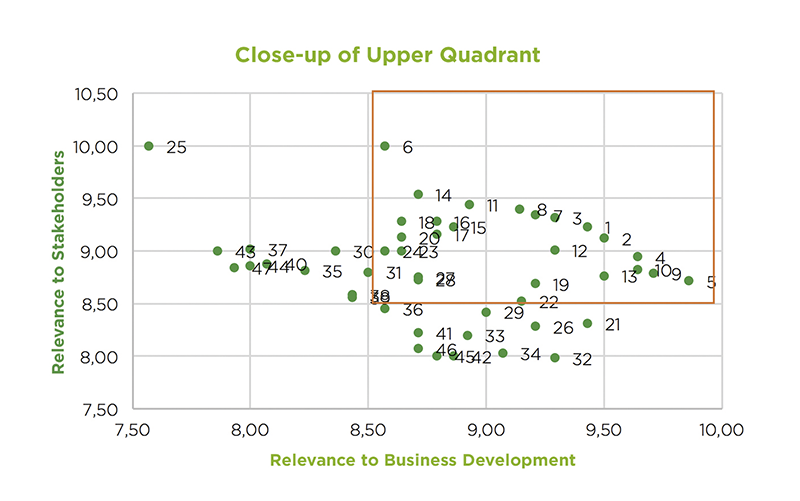9.1 Scope of the Report
[G4-3] [G4-28] [G4-29] [G4-30] We hereby present our eighth Sustainability Report, which is published annually, in order to report to the general public and different company stakeholders about the company’s 2016 economic, environmental and corporate governance related affairs.
[G4-17] The scope of this report includes our current operations in addition to the Metro network expansion projects in the Santiago, Metropolitan Region in 2016. Furthermore, the report herein also contains an account of information pertaining to MetroArte Cultural Trust (Corporación Cultural MetroArte) but does not include information from Empresa de Transporte Suburbano de Pasajeros S.A. or Corporación Metro Ciudadano.
[G4-32] [G4-33] This report is drafted according to the Global Reporting Initiative (GRI). This year Metro has opted for issuing an essential report that accounts on more indicators than those required by this type of report, in spite of not having been verified by an independent organization.
9.2 Definition of Report Content
Materiality Assessment
Materiality Process
Identifying Material Aspects
[G4-18] [G4-19] [G4-20] [G4-21] During the preliminary identification of material aspects we first conferred with our stakeholders to recognize their main needs, concerns, and requirements suggested in the context of our relationship. Then, we conducted a review process in which we consulted primary and secondary sources of information in order to comprehensively establish the sustainability context in which our organization operates.
We identified a total of 73 material aspects during this stage.
Prioritization of Material Aspects
After having completed the material aspects stage, we moved on to the next stage, which consisted of assessing each aspect in terms of its significance. This entailed conducting a total of seven probabilistic surveys, using the semantic differential assessment tool:
-
Managers
-
Users
-
Suppliers
-
Contractors
-
Workers
-
Store Operators
-
Authorities
Surveys assessed two areas: the relevance of each aspect to the development of our business, for which we relied primarily on the results of Manager surveys; and the relevance of each aspect to our priority stakeholders.
This stage concluded with a list of priority aspects for our business. These are illustrated in the chart below:
Close-up of Upper Quadrant

List of Material Aspects and their Coverage
| N° | Material Aspects | Coverage |
|---|---|---|
| 1 | Safety on Trains and at Stations | Internal - External |
| 2 | Quality of Life at Work | Internal |
| 3 | Respect for Contract Conditions | Internal |
| 4 | Occupational Health and Safety | Internal – External |
| 5 | Operational Continuity | Internal |
| 6 | Physical working conditions for employees, suppliers, contractors and store operators | Internal – External |
| 7 | Efficiency of Service | External |
| 8 | Speed of Service | External |
| 9 | Work Climate | Internal |
| 10 | Metro Network Expansion | External |
| 11 | Long-term Relations with Metro | Internal- External |
| 12 | Universal Access | External |
| 13 | Own employees, suppliers, contractors and store operators treated well | Internal- External |
| 14 | Temperature on Trains and at Stations | External |
| 15 | Urban Connectivity | External |
| 16 | Cleanliness of Trains and Stations | External |
| 17 | Passenger Density at Peak Hour | External |
| 18 | Work Benefits | Internal |
| 19 | Professional Quality of Metro’s Team | Internal |
| 20 | Job Security | Internal |
Validation
At the end of the day our materiality analysis highlights the areas where the Sustainability Report should focus.
This document reports on all aspects related to the 2016 administration; we have defined material indicators and structured the report based on materiality resultswhich were validated by a Committee from the Customer and Sustainability Management division.

